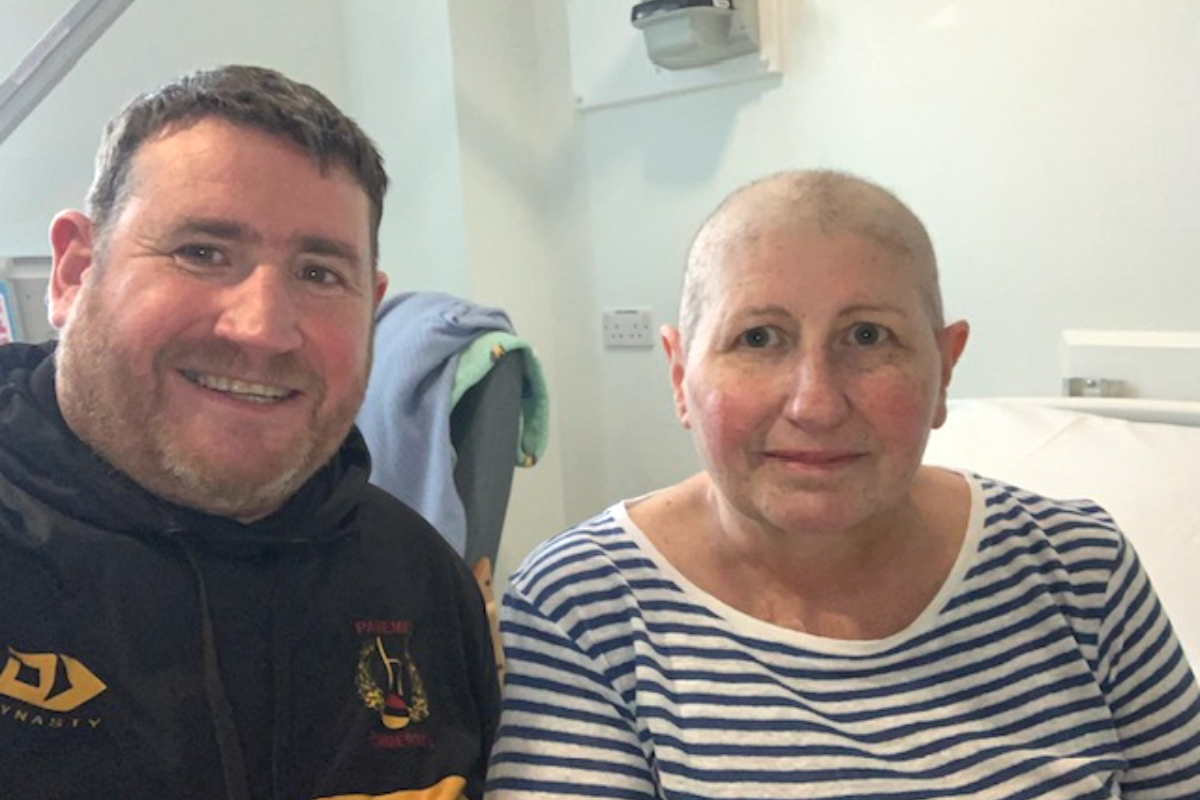
A loving brother has flown across the world to donate stem cells, to help save his sister’s life after she was told she would have a maximum of two years to live without treatment.
Colin Gwilliam, 56, flew from Wellington, New Zealand, to Leeds, in June this year, after he was found as a perfect tissue match for his older sister, Jenny, who needed a stem cell transplant to help treat blood cancers.
Colin visited NHS Blood and Transplant’s Therapeutic Apheresis Services (TAS) in Leeds, to have his stem cells collected and just two days later, watched them being infused into his sister’s blood stream, in a bid to replace her cells with new, healthy ones.
Jenny Gwilliam, from near Malton, was diagnosed with a rare chronic blood cancer, essential thrombocythemia (ET), in 2006. Eleven years later, it developed into myelofibrosis – a rare blood cancer that causes scarring of the bone marrow – and in April 2024, into acute myeloid leukaemia (AML), which is when a stem cell transplant became crucial.
It will take up to 12 months to know if the transplant has worked but so far, Jenny says
“the signs are looking good.”
“My life was upended when I was told I had AML, I was numb with shock, I had no symptoms at all and suddenly I was being told I had two options – palliative care, with which I could expect another one or two years of life, or intensive chemotherapy and a stem cell transplant.
“Colin told me to try every option, so with his support, I did. So we started the process of flying blood samples across the world to reconfirm that he was a perfect match. When I found out that he had been accepted by the transplant donor team, it felt like a gift. Why would I turn that down?”
When a patient needs a stem cell transplant, their tissue (or HLA – human leukocyte antigen) type must match that of the donor, making finding a match quite difficult. Siblings have a 25% chance of being a full match and are tested first.
Knowing that a fresh donation – rather than frozen – can help patients to recover faster, Colin decided to fly to Leeds. The donation took five hours and almost 14 million stem cells were collected – one of the largest outputs the TAS Leeds team has experienced and more than double what was needed to treat Jenny. The remaining stem cells have been stored in case any further treatment is needed.
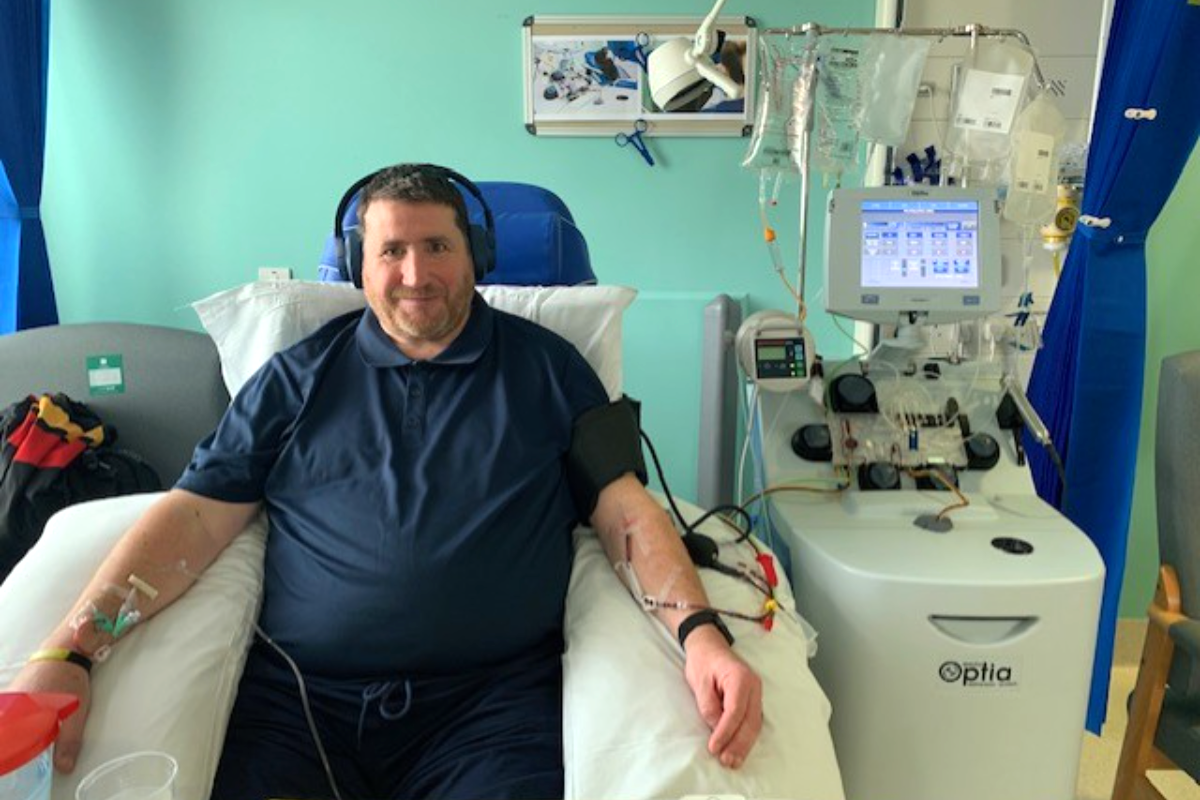
Colin, an IT Manager and father of one, says:
“Flying across the world to potentially save my sister’s life was a no-brainer. I would have done anything I could – going back to the UK and spending a few hours donating my stem cells felt easy compared to everything that she has been going through.
“The donation process was simple – the staff on the TAS unit made sure I was always comfortable and looked after and the whole thing passed by really quickly. I had a needle in each arm and just sat back and relaxed for a few hours. What was really special was that, normally, a stem cell donor and their recipient won’t ever meet, but I was just a few doors down from Jen when I did my donation and two days later, I was sitting next to her as my stem cells were added into her blood stream.
“There’s only 14 months between us so we’ve always been close but having gone through this process together has made us even closer. I feel incredibly lucky to have been able to help my big sister in this way and would do it all over again.”
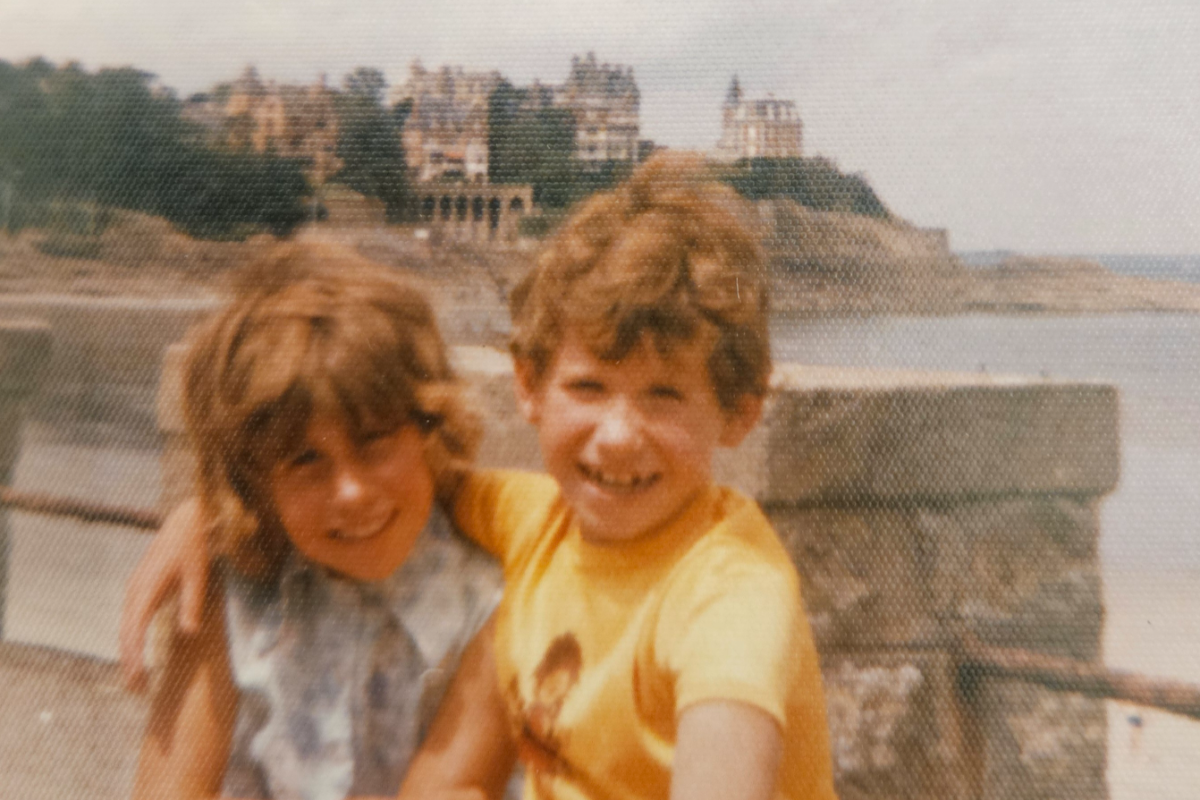
Jenny says:
“I feel extremely lucky that not only was Colin a match, but that he agreed to donate for me – it felt like a big thing, asking him to leave his young family behind and fly to the other side of the world to help me out and I’m extremely grateful to him for doing so.
“The transplant itself was extremely simple - it was over in 22 minutes. But it’s been a long and difficult journey to get here, so having Colin and our parents by my side was the greatest support I could ask for. It was such a pivotal moment in my life.
“I’m coming out of the end of my first six months post-transplant and looking towards being able to live my life a little more normally as my immune system improves. I’m waiting to see if the transplant has fully worked, but the signs are looking good so far. Being cancer free after 18 years would be indescribable and I would have Colin to thank.
“What better gift could somebody give you than the gift of life? I’ll be forever grateful.
“As well as Colin, I’m also extremely grateful and appreciative for all of the incredible ongoing care, knowledge and pro-activeness of everybody across the NHS who has helped to get me to where I am today. It has taken a village to get me this far.”
Charlotte Blacklock-Lumb, Lead Nurse at NHS Blood and Transplant’s Therapeutic Apheresis Services in Leeds, who was a part of the team that collected Colin’s stem cells, says:
“Working on the collection side, we don’t often get to hear the outcome of stem cell transplants, so to hear that Jenny is doing well and the signs are looking good, is fantastic.
“We are so proud of the life-saving and life-enhancing work that we do at TAS – and across NHSBT as a whole. We treat over 2,100 patients – and support over 250 stem cell donors - every year at our eight TAS units and knowing that you have made a real difference to every one of them, is one of the best parts of the job.
“It was the pleasure of the whole team at TAS Leeds to have collected Colin’s stem cells and to play that part in Jenny’s treatment. I would like to wish them both all the best for the future.”
NHS Blood and Transplant’s Therapeutic Apheresis Services (TAS) provide life-saving and life-enhancing treatments to over 2,100 patients every year – more than 12,000 procedures - using innovative technology to exchange, remove or collect components within the blood, to treat conditions including cancer, Sickle Cell and immune disorders. TAS supports over 250 stem cell donors every year.
For more information on joining the NHS Stem Cell Donor Registry, visit blood.co.uk/stemcells.
For more information on TAS, visit nhsbt.nhs.uk.




 Candidates Confirmed for First Scarborough Town Council Elections
Candidates Confirmed for First Scarborough Town Council Elections
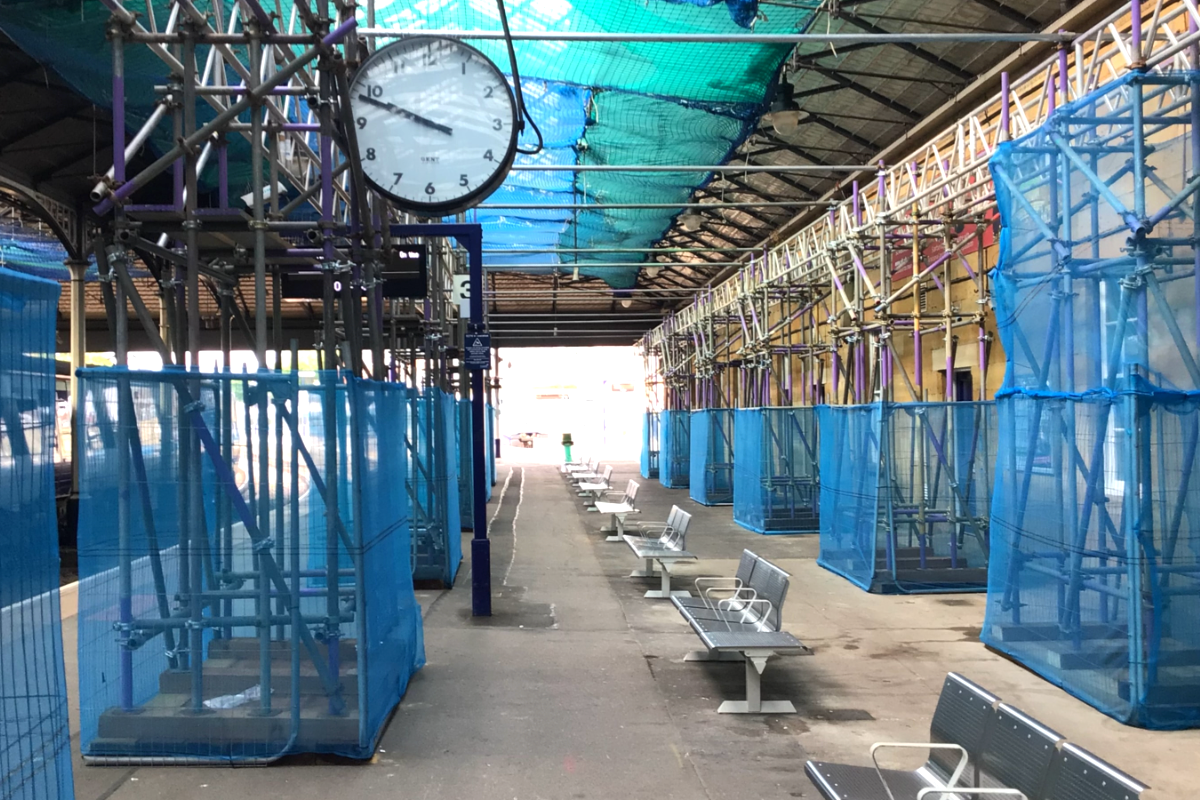 Scarborough Station Set for Multi-Million-Pound Roof Renovation
Scarborough Station Set for Multi-Million-Pound Roof Renovation
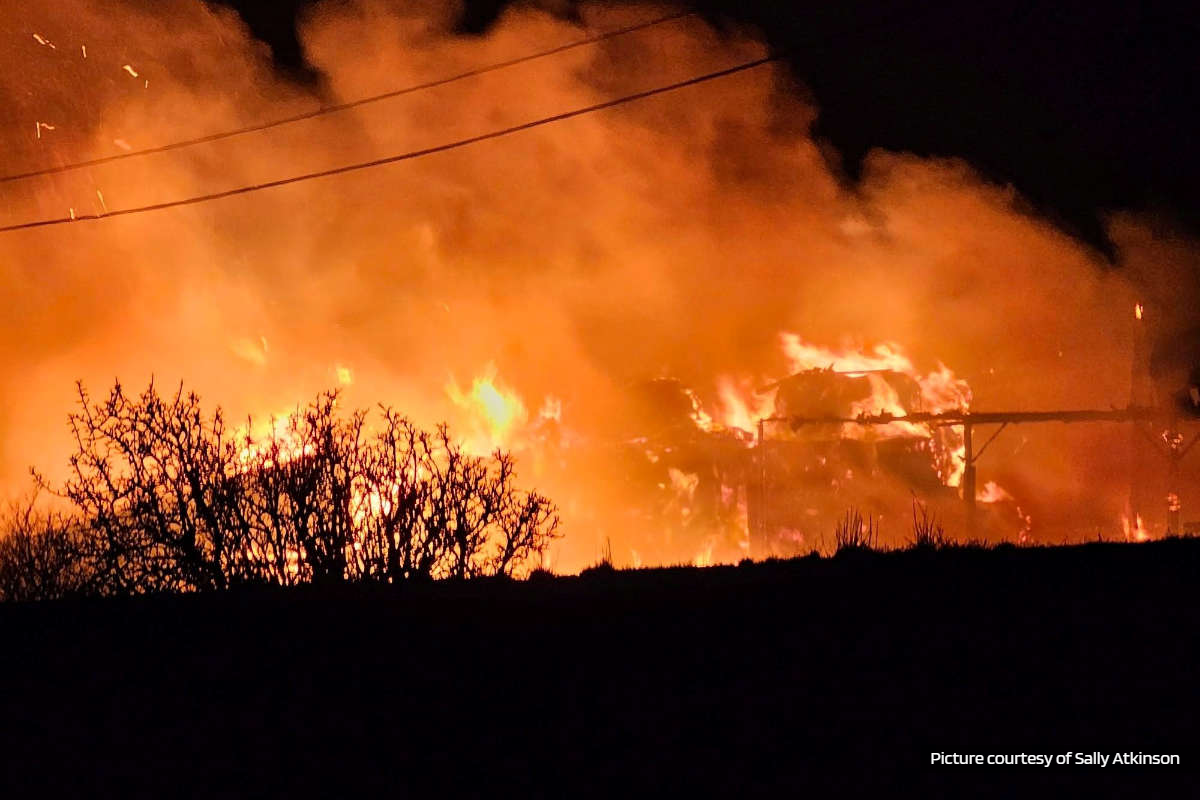 Renewed Appeal Following "Shocking" Arson in Whitby
Renewed Appeal Following "Shocking" Arson in Whitby
 Six Candidates Standing to Become First Elected Mayor of Hull and East Yorkshire
Six Candidates Standing to Become First Elected Mayor of Hull and East Yorkshire
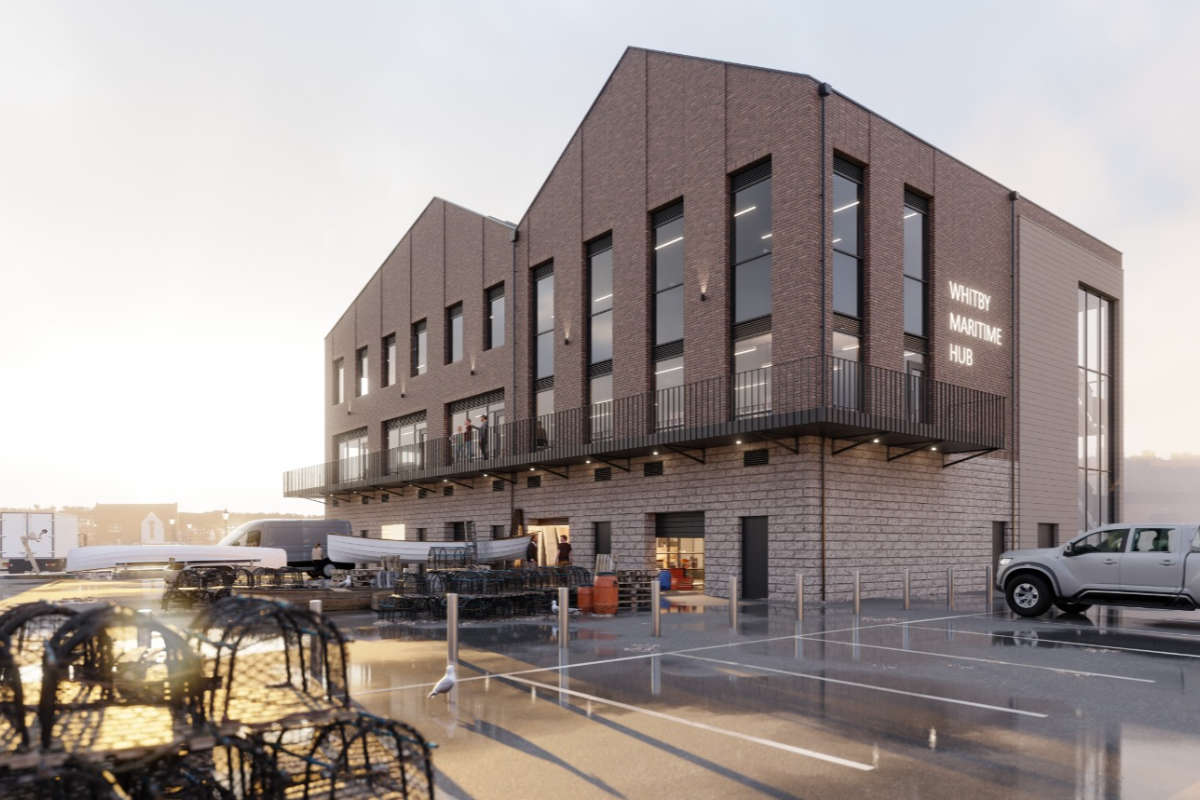 Construction to Start on Whitby Maritime Hub
Construction to Start on Whitby Maritime Hub
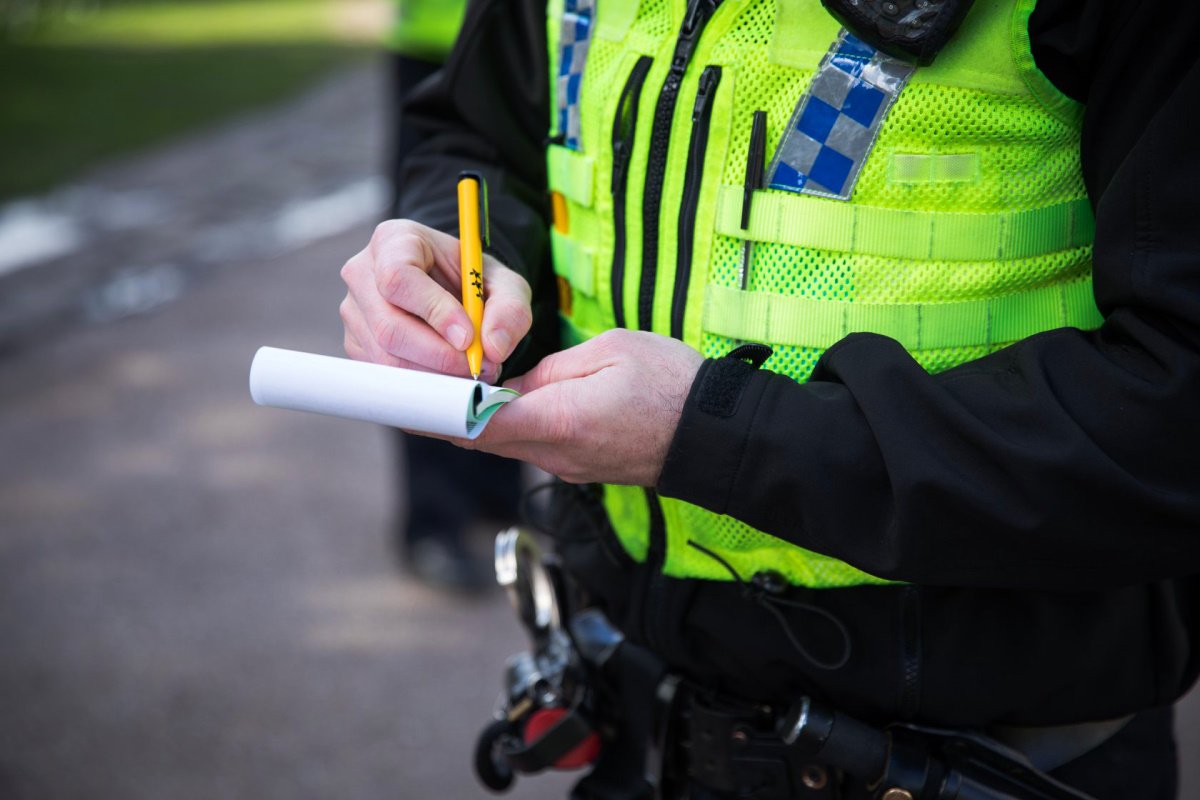 Police Appeal for Information Following Whitby Robbery
Police Appeal for Information Following Whitby Robbery
 Concern Over Increasing Number of Older Renters in Scarborough
Concern Over Increasing Number of Older Renters in Scarborough
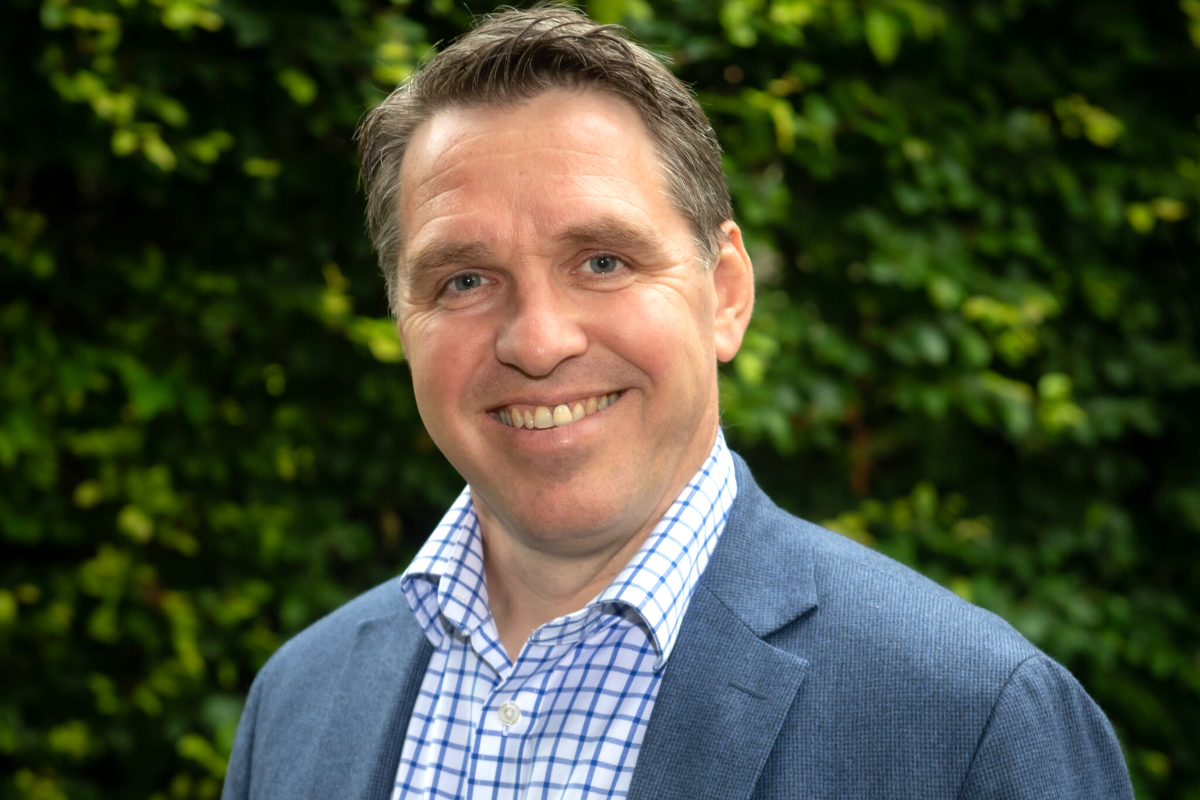 York and North Yorkshire Chief Exec Confident Devolution Will Boost Northern Power and Investment
York and North Yorkshire Chief Exec Confident Devolution Will Boost Northern Power and Investment
 Double Success for Scarborough Motor Firm
Double Success for Scarborough Motor Firm
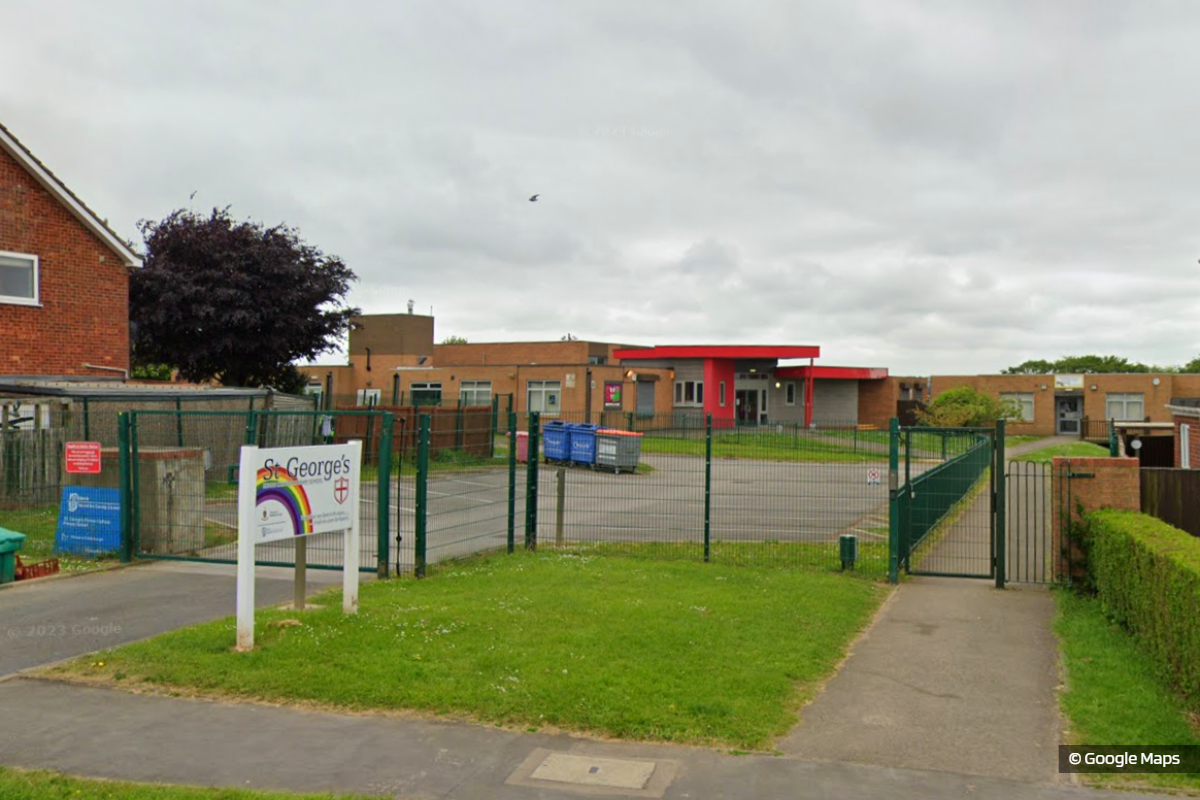 Scarborough School Receives Funding for New School-Based Nursery
Scarborough School Receives Funding for New School-Based Nursery
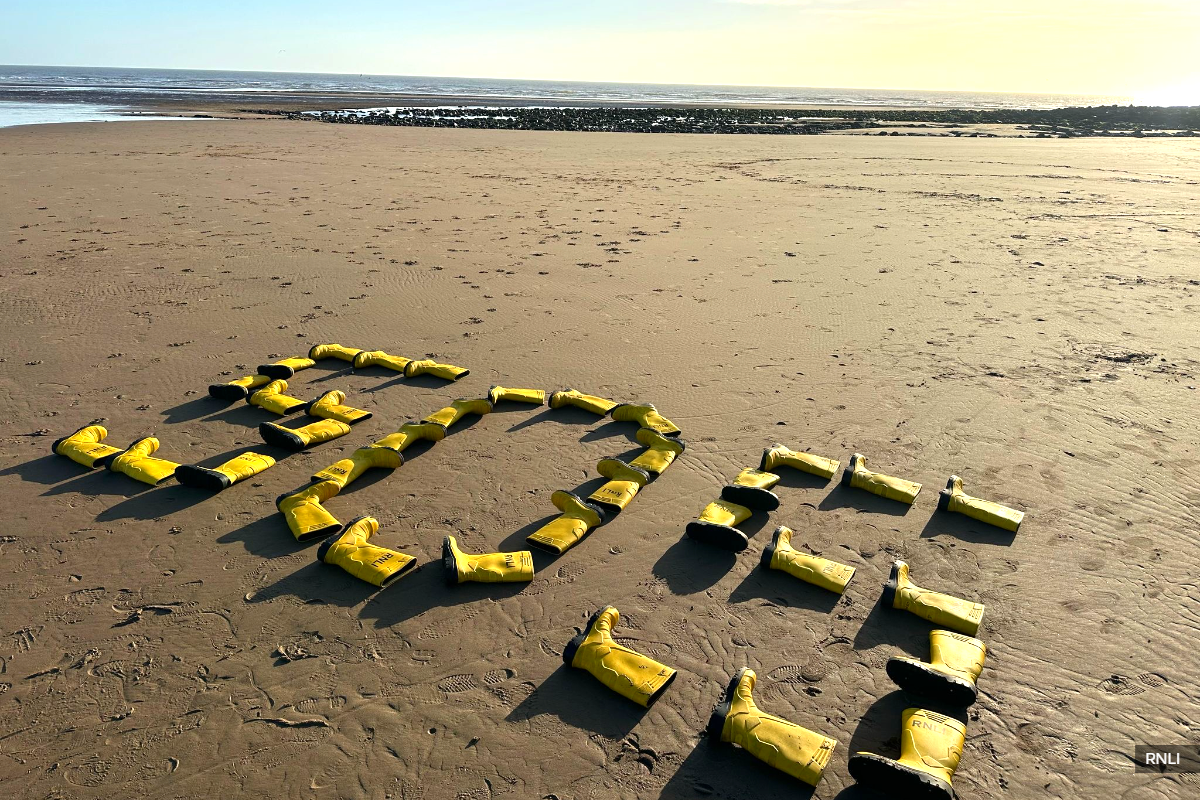 RNLI Bridlington Puts Out Mayday Call to Help Raise Vital Funds
RNLI Bridlington Puts Out Mayday Call to Help Raise Vital Funds
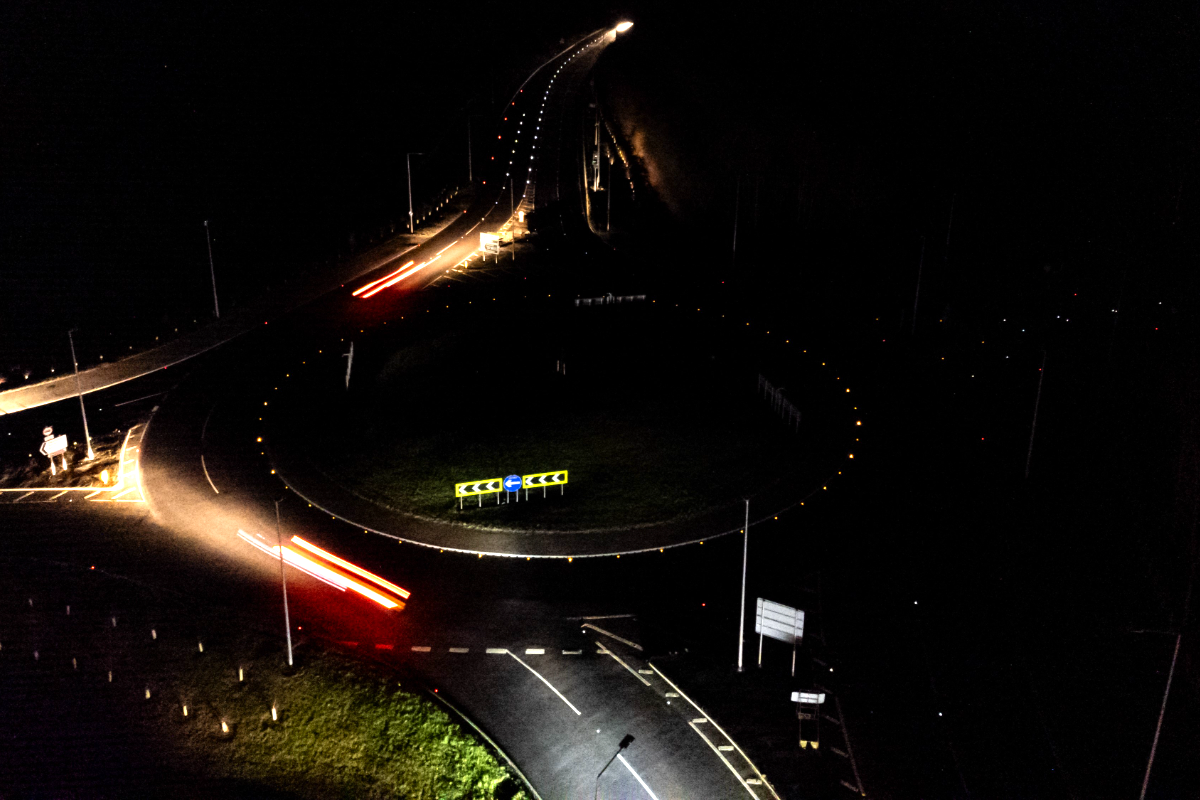 Street Lights Switched Off Along Two East Riding Roads as Part Carbon Cutting Trial
Street Lights Switched Off Along Two East Riding Roads as Part Carbon Cutting Trial








Comments
Add a comment